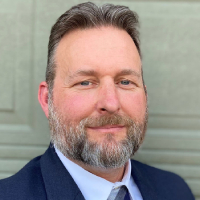
The Future of Onsite Direct Potable Water Reuse in the International Codes®
The Code Council’s water reuse working group has taken extensive measures to form upcoming onsite potable water reuse code proposals for the 2027 IPC and IRC.
Starting in late 2022, the International Code Council began preparing for the development of the 2027 International Codes® (I-Codes). These codes are updated every three years to reflect advancements in building technology, best practices and regulatory requirements, ensuring buildings are constructed and maintained to the highest standards of safety and efficiency.
The Code Council’s PMG Code Action Committee’s Water Reuse Working Group was formed to address how direct onsite potable water reuse is becoming more predominant in the built environment. The working group included representation from the U.S. Environmental Protection Agency’s (EPA) Water Reuse Action Plan (WRAP) Team, National Blue-Ribbon Commission (NBRC), NSF International, engineers, design professionals, manufacturers, local/state/federal health departments, building owners, plumbing contractors and code officials.
These industry leaders compiled extensive data and conducted a comprehensive review of the water reuse requirements in the 2024 International Plumbing Code® (IPC) and 2024 International Residential Code® (IRC) to determine what updates were needed to better address onsite direct potable water reuse in the 2027 versions of the IPC and IRC.
Toilet to Tap: Onsite Potable Water Reuse in the I-Codes
It was clear from the research that an extensive rewrite of the I-Codes water reuse provisions was required to support the industry’s latest advancements for onsite direct potable water reuse. The methodology behind these newly formed code proposals allows for direct onsite potable water reuse, or what is commonly referred to as “toilet to tap.”
It’s important that water is treated for the intended purpose and to look at where water is sourced. The Water Reuse Working Group reviewed the 2022 version of the ANSI/CSA B805/ICC 805 Rainwater Harvesting Systems Standard for guidance, which employs a risk-based assessment methodology. Within the standard, there are four levels of treatment based on end use which allows treatment systems to be designed accordingly.
SEE RELATED: Updated Rainwater Harvesting Standard: Conserving Water for the Long Run

Onsite Potable Water Reuse Code Proposals for the 2027 I-Codes
This risk-based assessment methodology has been carried over to the group’s 2027 code proposals which include easy-to-use charts listing the four treatment levels based on the end use.
Different onsite alternative water sources can have differing hazards associated with them. For example, if onsite alternative water sources are harvested from lavatories, that risk is not the same as harvesting it from toilets or urinals. However, because the risk is more significant, it should not equate to excluding toilets and urinals as a viable option for onsite water reuse projects.
These newly formed code sections will make it clear for the design community, plumbing contractors and code officials to determine compliance without needing to approve these systems under Chapter 1, alternative methods and materials. The Code Council’s PMG Code Action Committee ensured that water reuse was not required in the IPC or IRC, but instead provided provisions to support stakeholders looking for water reuse guidance. This allows for solutions to meet the needs of the region, building owners, and the design community.
Two proposals were developed by the working group regarding direct potable water reuse (DPR). One is for the IPC (ID number 9296, part I), and the other is for the IRC (ID number 10660, part II). These proposals will be available on cdpACCESS.

Additionally, the Code Council has filed a Project Initiation Notification (PINS) request with the American National Standards Institute (ANSI) to develop a standard series for professional qualifications for onsite direct potable reuse systems.
This groundbreaking standard will provide the necessary professional qualification requirements for direct potable reuse systems that are needed for installers, inspectors, design professionals, auditors and maintenance personnel. A call for committee members will be announced later this year.
For additional information on water reuse in the Code Council family of solutions, please contact Rich Anderson, Director, PMG Technical Resources, at randerson@iccsafe.org or visit iccsafe.org/pmg.
The Code Council’s PMG team has launched a bimonthly newsletter that covers the latest news in plumbing, mechanical, fuel gas, swimming pool & spa, and more in the U.S. and abroad. Click here or scan the QR code below to subscribe.









